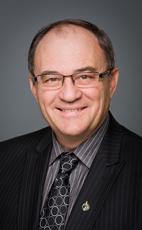Mr. Speaker, first I would like to thank my colleague from Yukon for introducing this bill. I would like to talk about an important issue regarding individuals with fetal alcohol spectrum disorder.
The purpose of Bill C-583 is to protect those vulnerable individuals born with fetal alcohol spectrum disorder. The enactment amends the Criminal Code to add a definition of fetal alcohol spectrum disorder and to establish a process for assessing individuals who are involved in the criminal justice system and who it is suspected suffer from fetal alcohol spectrum disorder.
It requires the court to consider, as a mitigating factor in sentencing, a determination that the accused suffers from fetal alcohol spectrum disorder and manifests certain symptoms.
Fetal alcohol spectrum disorder is an umbrella term used to describe any individual who suffers from a range of effects, including physical, mental, behavioural, and cognitive, and is caused by mothers who consume alcohol during pregnancy. Furthermore, it includes those who are diagnosed with fetal alcohol syndrome, partial fetal alcohol syndrome, alcohol-related neurodevelopment disorder, and alcohol-related birth defects.
As Sheila Burns explained in the Toronto Star:
Like Alzheimer’s, fetal alcohol spectrum disorder is an invisible, brain-based disability that impacts thinking. Individuals may appear capable but typically have significant limitations. They have difficulty recalling past experiences, anticipating consequences, adapting to new situations, solving problems and interacting socially.
Fifty per cent of those with fetal alcohol spectrum disorder meet the current definition of mental retardation.
The behavioural characteristics begin to develop in adolescence and can become more apparent in the adult years. These behavioural characteristics have been compared with those in autism, depression, and bipolar disease. Similarities include blaming others for one's mistakes and being emotionally volatile. People often exhibit wide mood swings that can escalate in response to stress, and they often do not follow through on instructions. As with other brain-based disabilities, the Criminal Code must also ensure that those with fetal alcohol spectrum disorder are provided an assessment on a case-by-case basis.
Fred Headon, the president of the Canadian Bar Association, has expressed his support and has emphasized the need for this amendment. He has called on the federal government to introduce a bill to give more authority to judges when dealing with an accused suffering from fetal alcohol spectrum disorder.
Statistics indicate that 60% of individuals with a diagnosis of fetal alcohol spectrum disorder have had difficulties with the law. With this in mind, the judges require access to tools to identify fetal alcohol spectrum disorder and the authority to order an assessment if needed.
During a meeting with Yukon Justice Minister Mike Nixon and other politicians in December, Mr. Headon said:
If we can get a recognition that the tools are required, then at least... [t]hat could mean making sure that they have the proper supports while they are there, making sure there are resources available to them while they’re in custody. It can also mean things like, when the prison discipline system is being invoked, making sure their condition is accounted for when discipline is being handed out and they’re getting fairly treated at that stage as well.
Research shows that the incidence of fetal alcohol spectrum disorder is considerably higher among aboriginal peoples and in rural, remote and northern communities.
I have personally met with families dealing with fetal alcohol spectrum disorder and heard their stories. Shelley adopted two young children with fetal alcohol spectrum disorder and describes how it affects their daily life.
Shelly adopted two young babies, a girl and a boy, who shared the same birth mother. At the time of the adoption, she was not aware that these two innocent lives had fallen victim to a horrible disorder caused by their mother drinking alcohol during pregnancy. Her children are two of 3,000 babies born each year with fetal alcohol spectrum disorder. Her daughter has been diagnosed with partial fetal alcohol syndrome, and her son will soon be diagnosed with an alcohol-related neurodevelopment disorder. In most cases, there are very few physical distinctions, and the impacts on their brains and overall mental development are not visible until their adolescent and teenage years.
Shelley has decided to spend countless hours to advocate for better support, education services, and understanding. She has been actively attending conferences, gaining media support, and teaching her community. Shelley's encounter with fetal alcohol spectrum disorder was unforeseen and continues to be a difficult journey. However, it was one well worth it. Her story tells us that intervention is needed yesterday.
We spoke about 60% of kids being affected by this disease. Imagine if we could prevent 60% of these kids from ending up in the justice system. If we could reduce that to 30%, we could use the money that is saved in the justice system to apply to research and to help the families that have difficulties with these children.

